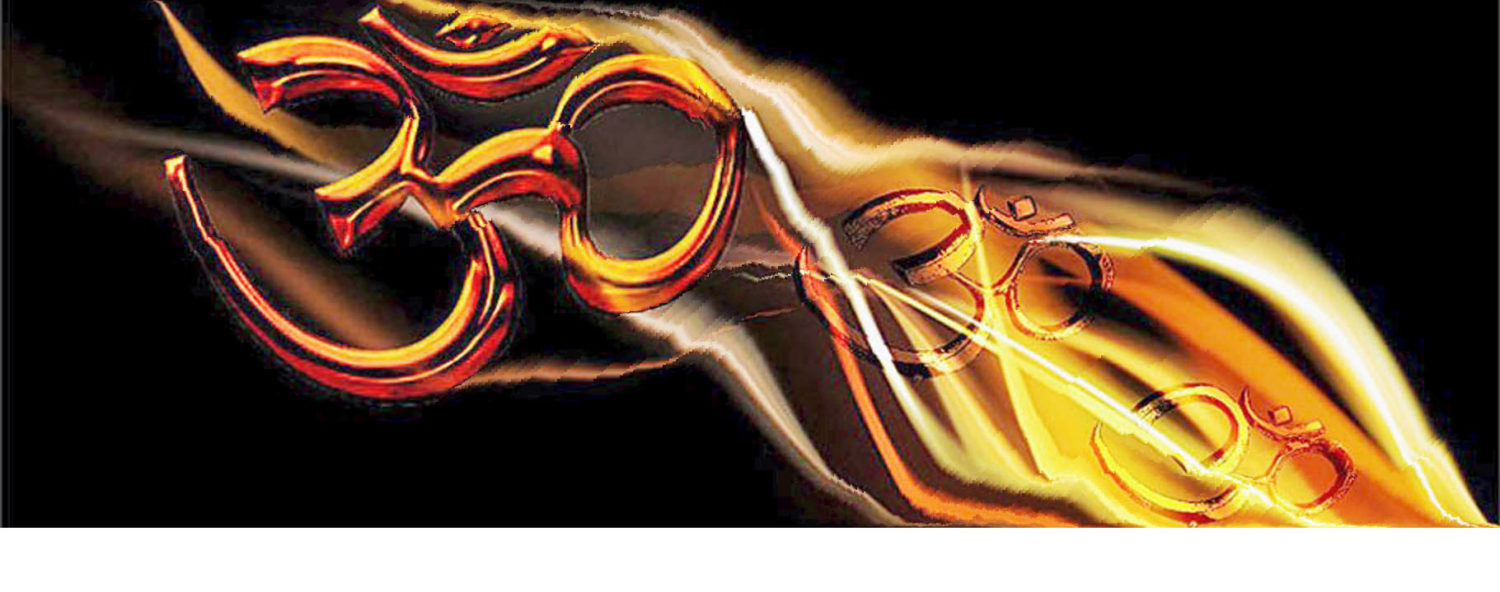Will Maharshi extend His Grace to me too ?
An aristocratic lady looking very intelligent, though pensive, asked:
“We had heard of you, Maharajji, as the kindest and noblest soul. We had long desired to have your darsan1. I came here once before, on the 14th of last month, but could not remain in your holy presence as long as I wished. Being a woman and also young, I could not stand the people around, and so broke away hurriedly after asking one or two simple questions. There are no holy men like you in our part of the country. I am happy as I have everything I want. But I do not have that peace of mind which brings happiness. I now come here seeking your blessing so that I may gain it.”
M.: Bhakti fulfils your desire.
D.: I want to know how I can gain that peace of mind. Kindly be pleased to advise me.
M.: Yes – devotion and surrender.
D.: Am I worthy of being a devotee?
M.: Everyone can be a devotee. Spiritual fare is common to all and never denied to anyone – be the person old or young, male or female.
D.: That is exactly what I am anxious to know. I am young and a grihini (housewife). There are duties of grihastha dharma (the household way of life). Is devotion consistent with such a position?
M.: Certainly. What are you? You are not the body. You are Pure Consciousness. Grihastha dharma and the world are only phenomena appearing on that Pure Consciousness. It remains unaffected. What prevents you from being your own Self?
D.: Yes I am already aware of the line of teaching of Maharshi. It is the quest for the Self. But my doubt persists if such quest is compatible with grihastha life.
M.: The Self is always there. It is you. There is nothing but you. Nothing can be apart from you. The question of compatibility or otherwise does not arise.
D.: I shall be more definite. Though a stranger, I am obliged to confess the cause of my anxiety. I am blessed with children. A boy – a good brahmachari – passed away in February. I was grief-stricken. I was disgusted with this life. I want to devote myself to spiritual life. But my duties as a grihini do not permit me to lead a retired life. Hence my doubt.
M.: Retirement means abidance in the Self. Nothing more. It is not leaving one set of surroundings and getting entangled in another set, nor even leaving the concrete world and becoming involved in a mental world.
The birth of the son, his death, etc., are seen in the Self only.
Recall the state of sleep. Were you aware of anything happening? If the son or the world be real, should they not be present with you in sleep? You cannot deny your existence in sleep. Nor can you deny you were happy then. You are the same person now speaking and raising doubts. You are not happy, according to you. But you were happy in sleep. What has transpired in the meantime that happiness of sleep has broken down? It is the rise of ego. That is the new arrival in the jagrat state.
There was no ego in sleep. The birth of the ego is called the birth of the person. There is no other kind of birth. Whatever is born is bound to die. Kill the ego: there is no fear of recurring death for what is once dead. The Self remains even after the death of the ego. That is Bliss – that is Immortality.
D.: How is that to be done?
M.: See for whom these doubts exist. Who is the doubter? Who is the thinker? That is the ego. Hold it. The other thoughts will die away. The ego is left pure; see where from the ego arises. That is pure consciousness.
D.: It seems difficult. May we proceed by bhakti marga?
M.: It is according to individual temperament and equipment. Bhakti is the same as vichara.
D.: I mean meditation, etc.
M.: Yes. Meditation is on a form. That will drive away other thoughts. The one thought of God will dominate others. That is concentration. The object of meditation is thus the same as that of vichara.
D.: Do we not see God in concrete form?
M.: Yes. God is seen in the mind. The concrete form may be seen. Still it is only in the devotee’s mind. The form and appearance of God-manifestation are determined by the mind of the devotee. But it is not the finality. There is the sense of duality.
It is like a dream-vision. After God is perceived, vichara commences. That ends in Realisation of the Self. Vichara is the ultimate route.
Of course, a few find vichara practicable. Others find bhakti easier.
D.: Did not Mr. Brunton find you in London? Was it only a dream?
M.: Yes. He had the vision. He saw me in his mind.
D.: Did he not see this concrete form?
M.: Yes, still in his mind.
D.: How shall I reach the Self?
M.: There is no reaching the Self. If the Self were to be reached, it would mean that the Self is not now and here, but that it should be got anew. What is got afresh, will also be lost. So it will be impermanent. What is not permanent is not worth striving for. So I say, the Self is not reached.
You are the Self. You are already That. The fact is that you are ignorant of your blissful state. Ignorance supervenes and draws a veil over the pure Bliss. Attempts are directed only to remove this ignorance. This ignorance consists in wrong knowledge. The wrong knowledge consists in the false identification of the Self with the body, the mind, etc. This false identity must go and there remains the Self.
D.: How is that to happen?
M.: By enquiry into the Self.
D.: It is difficult. Can I realise the Self, Maharaj? Kindly tell me. It looks so difficult.
M.: You are already the Self. Therefore realisation is common to everyone. Realisation knows no difference in the aspirants. This very doubt, “Can I realise?” or the feeling, “I have not realised” are the obstacles. Be free from these also.
D.: But there should be the experience. Unless I have the experience how can I be free from these afflicting thoughts?
M.: These are also in the mind. They are there because you have identified yourself with the body. If this false identity drops away, ignorance vanishes and Truth is revealed.
D.: Yes, I feel it difficult. There are disciples of Bhagavan who have had His Grace and realised without any considerable difficulty. I too wish to have that Grace. Being a woman and living at a long distance I cannot avail myself of Maharshi’s holy company as much as I would wish and as often as I would. Possibly I may not be able to return. I request Bhagavan’s Grace. When I am back in my place, I want to remember Bhagavan. May Bhagavan be pleased to grant my prayer!
M.: Where are you going? You are not going anywhere. Even supposing you are the body, has your body come from Lucknow to Tiruvannamalai? You had simply sat in the car and one conveyance or another had moved; and finally you say that you have come here. The fact is that you are not the body. The Self does not move. The world moves in it. You are only what you are. There is no change in you. So then even after what looks like departure from here, you are here and there and everywhere. These scenes shift.
As for Grace – Grace is within you. If it is external it is useless. Grace is the Self. You are never out of its operation. Grace is always there.
D.: I mean that when I remember your form, my mind should be strengthened and that response should come from your side too. I should not be left to my individual efforts which are after all only weak.
M.: Grace is the Self. I have already said, “If you remember Bhagavan, you are prompted to do so by the Self.” Is not Grace already there? Is there a moment when Grace is not operating in you? Your remembrance is the forerunner of Grace. That is the response, that is the stimulus, that is the Self and that is Grace.
There is no cause for anxiety.
D.: Can I engage in spiritual practice, even remaining in samsara?
M.: Yes, certainly. One ought to do so.
D.: Is not samsara a hindrance? Do not all the holy books advocate renunciation?
M.: Samsara is only in your mind. The world does not speak out, saying ‘I am the world’. Otherwise, it must be ever there – not excluding your sleep. Since it is not in sleep it is impermanent. Being impermanent it has no stamina. Having no stamina it is easily subdued by the Self. The Self alone is permanent. Renunciation is non-identification of the Self with the non-self. On the disappearance of ignorance the non-self ceases to exist. That is true renunciation.
D.: Why did you then leave your home in your youth?
M.: That is my prarabdha (destiny). One’s course of conduct in this life is determined by one’s prarabdha. My prarabdha is this way. Your prarabdha is that way.
D.: Should I not also renounce?
M.: If that had been your prarabdha, the question would not have arisen.
D.: I should therefore remain in the world and engage in spiritual practice. Well, can I get realisation in this life?
M.: This has been already answered. You are always the Self. Earnest efforts never fail. Success is bound to result.
D.: Will Maharshi be pleased to extend Grace to me also!
Maharshi smiled and said “Um! Um!” With blessings and salutation, the interview came to a close and the party departed directly.
Talks with Sri Ramana Maharshi
29th September, 1936
Talk 251.












